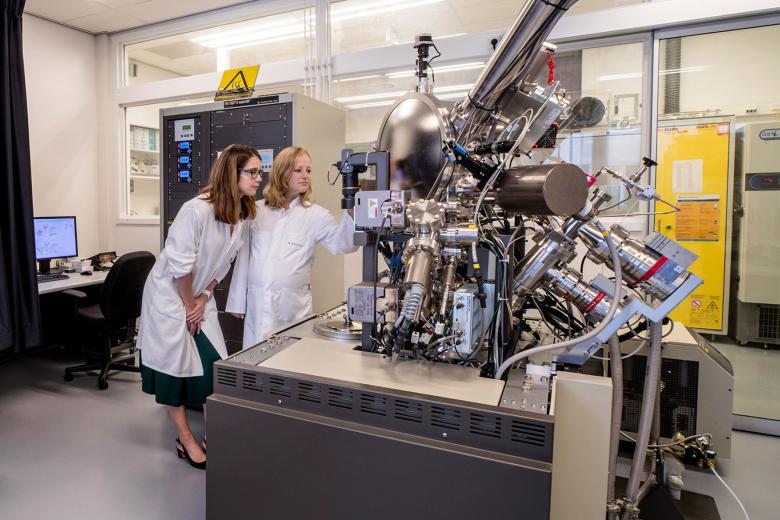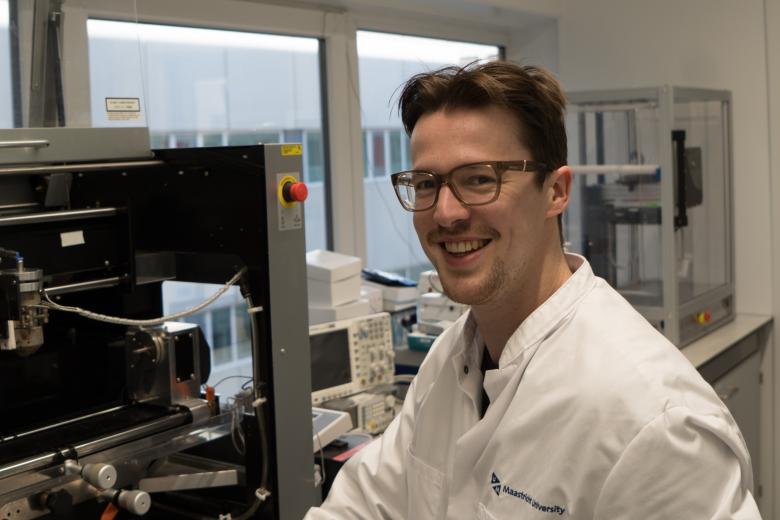Kim Luijten - secretary of the Faculty Council
At the Faculty of Health, Medicine and Life Sciences, students and staff strive to make a difference. For instance, Renee explores how we can prepare students for interprofessional collaboration and Herma works on support for teaching staff. In ‘Nice to meet you’, these people introduce themselves and talk about their work at FHML.
At UM, each faculty has a representative body. At the Faculty of Health, Medicine and Life Sciences, this is the faculty council. The faculty council consists of 18 passionate students and staff members and acts as a voice for the entire faculty. But how do 18 people represent Maastricht University's largest faculty? According to Kim Luijten, the dedicated secretary of the Faculty Council for over 13 years, this is achieved by having a council that represents the faculty and its staff in all its facets. It is also important that the council can work with input that comes from across the FHML organisation.
Fresh faces in the council
The composition of the Faculty Council is a representation of students, academic staff, and support staff, says Kim. “The members know what matters to their peers and bring that to the council’s table. Afterwards, they also report back on what was discussed—except for confidential matters.” To maintain this representation, elections are held every two years for new staff members. “We are looking forward to welcoming fresh faces to the council, as it has had the same composition for several years.”
At the faculty council, you are involved in important decision-making processes going on within the faculty. ‘The members work for the benefit of the faculty and everyone who works or studies there. That intrinsic motivation to contribute to improving the faculty is something that drives all our current members.’ Both the FHML Board and the Faculty Council would like to encourage employees to apply for the upcoming Faculty Council elections in March.
That intrinsic motivation to contribute to improving the faculty is something that drives all our current members.
The indispensable link
Even if the entire composition of the council were to change, one key figure remains: Kim. As secretary, she ensures the smooth running of meetings and follows up on minutes and action items. “I work for various committees and bodies, and you can imagine that a thousand and one things are discussed. The chairpersons usually have very busy schedules, and I like being the person who reminds them of pending agenda items and monitors their follow-up.” For the faculty board, for example, Kim keeps an overview of all requested and unrequested agenda items that the board discusses.
“The faculty board is required to submit certain items to the Faculty Council. For example, learning chairs are a frequent topic the council provides advice on—that is requested advice. But the Faculty Council can also raise topics that were not explicitly requested by the board, such as workload or Recognition and Appreciation (Erkennen en Waarderen). The council then serves as a catalyst to bring such points to the board for discussion. Employees can also submit topics to the Faculty Council, and we want people to know how to find us.”
Behind the closed doors of the Co Greep hall
Kim is looking forward to the elections for new faculty council members in March. ‘Are you curious about what goes on within the faculty in terms of education, research and cooperation with the hospital? And can you raise your voice in a discussion? Then the faculty council might be for you. If you would like to know what goes on behind the closed doors of the Co Greep hall every month, . apply via this website.
Also read
-
UM to play a more prominent role in Dutch scientific infrastructure
Eleven consortia from various scientific disciplines are set to launch projects of great value to science. The Dutch government is making a total of €197 million available for this purpose. Scientists from Maastricht University (UM) are closely involved in seven of the eleven projects.

-
17 million for Dutch mega cohort: working together to build healthier ageing
MUMC+ is main applicant in the NCC: a unique research infrastructure with data from almost half a million Dutch citizens.
-
Letting bone and cartilage repair themselves
Tim ten Brink focuses on developing implants for damaged bone and cartilage, so eventually there is less need for invasive surgery.
